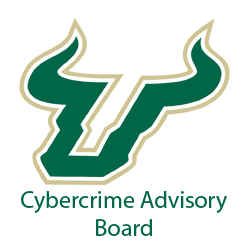
What is the Log4j Flaw?
There is a lot of vocabulary flying around lately involving something called Log4j. The Log4j vulnerability, Log4j zero-day flaw, Log4j scanners… What’s everyone talking about? For something to generate so much buzz in a year that was so rife with security breaches, it must be important. You’re right if you guess that Log4j vulnerabilities are worth understanding. But what does any of this mean? Definitions are usually the first step in understanding technical topics like this. Log4j is a Java library that makes it easy to log error messages. Java libraries are templates for programming objects, so if there is a flaw in the library, the entire program base has flaws.
More About Log4j
The open-source Apache Software Foundation developed Log4j, and it has been instrumental for Java users. It’s not some small thing that a few people use. Log4j is almost standard, affecting millions of users and potentially billions of end-users. If we had to rank how serious a security flaw with Log4j would be, it ranks a 10 out of 10… And a remote code execution flaw? That’s an 11. This is severe.
What is Remote Code Execution?
Remote code execution flaws allow malicious actors to perform arbitrary code on your machine. Normally a user has to choose and authorize a program to execute code. This means double-clicking a program, running it, and allowing it the permissions it needs to execute. Remote code execution lets hackers run code without permission automatically or manually. This can give them complete control over what happens on your computer. So what do hackers usually do with remote code execution? Encrypt your data, and demand a ransom for it.
Who Is At Risk?
Even if you’ve never used Log4j libraries as a part of your codebase, the services you use may have. Any device with an internet connection is at risk if it runs Apache Log4j. The versions under the most scrutiny are versions 2.0 through 2.14.1. Frameworks such as Swift, Druid, and Solr rely on and include Log4j 2.0. In addition, there are botnets out there that target multiple devices looking for the Log4j vulnerability automatically. Because of this, several companies have put out patches and fixes for the affected software.
How Can I Be Safe From Log4j Attacks?
The first thing you need to do is determine which, if any, of your devices are running Log4j. If you find some, immediately update them to version 2.15.0 or the latest update available. Some vendors have also sent mitigation patches to be applied right away. In addition, collaborative efforts by vendors, governments, and end-users can help reduce a significant security threat. Setting up alerts for probes or attacks sent by botnets trying to exploit Log4j is also useful.
It’s essential for every business to identify whether or not it is at risk, and if it is, to minimize that risk. Firewall rules that focus on Log4j are also useful. If you need help figuring out if your business is at risk from malicious attacks through the Log4j vulnerability, Arruda Group can help. This is a major security threat that all eyes are focusing on. Going into 2022, the threat will continue to evolve and advance. Business owners and individuals will want to do all they can to stay safe from this changing threat.




